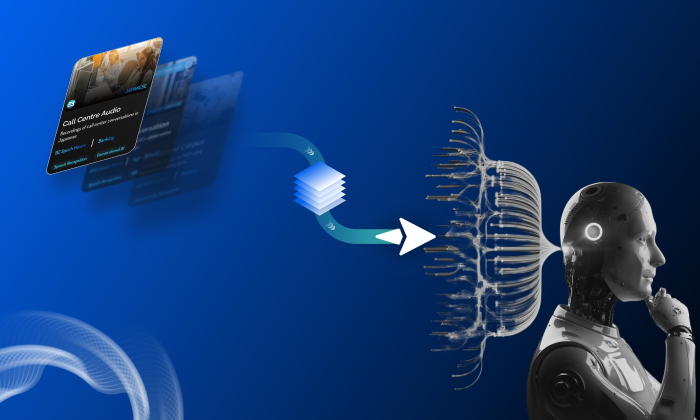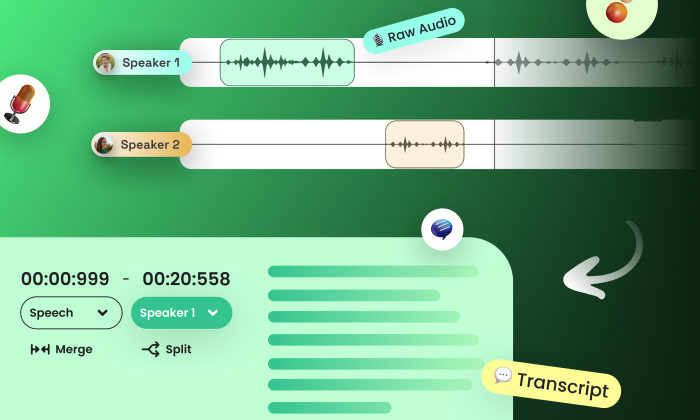What is noise perturbation and why is it used in training?
Noise Perturbation
Machine Learning
Model Training
Noise perturbation is a data augmentation technique used in the training of AI models, specifically in speech recognition and natural language processing (NLP). It involves systematically introducing variations, such as background noise or changes in audio characteristics, to training data. This approach enhances the model's ability to generalize and perform reliably across diverse, real-world environments.
Key Benefits of Noise Perturbation in Speech AI
Noise perturbation plays a crucial role in developing robust AI systems. Here’s why it matters:
- Enhanced Robustness in Speech AI: By incorporating diverse noise elements into training data, models become more resilient to the unpredictable conditions they may encounter in real-world scenarios, such as noisy café environments or busy streets.
- Improved Generalization in Machine Learning: Models trained with noise-augmented data learn to generalize better to new, unseen data. This reduces the likelihood of overfitting, where a model performs well on training data but poorly in real-world applications.
- Realistic Scenario Simulation: Introducing noise replicates the complexities of natural communication, enabling models to distinguish between relevant speech signals and irrelevant background sounds effectively.
How Noise Perturbation Works
Implementing noise perturbation involves several structured steps:
- Data Selection: Choose a diverse dataset encompassing various accents, speaking styles, and contexts. This foundational step ensures the dataset's initial quality and coverage.
- Noise Application: Apply noise using methods like:
- Background Noise Addition: Integrate realistic environmental sounds (e.g., traffic, chatter).
- Signal Modifications: Adjust pitch, speed, or volume to create diverse audio presentations.
- Synthetic Variations: Use algorithms to generate additional noise-affected examples that align with the dataset's profile.
- Evaluation and Tuning: Assess the model's performance with both perturbed and clean datasets. This evaluation helps ensure that the noise-enhanced dataset improves robustness without sacrificing accuracy.
Avoiding Common Mistakes in Noise Perturbation
While noise perturbation offers significant benefits, it also presents challenges. Here are some pitfalls to avoid:
- Excessive Noise Addition: Overloading data with noise can obscure meaningful signals, leading to decreased model performance. Apply noise judiciously to maintain data clarity.
- Neglecting Real-World Contexts: Ensure that noise scenarios reflect real-world conditions where the model will be deployed, providing a representative training environment.
- Inadequate Testing: Thoroughly test models on both noise-augmented and clean datasets to verify robustness improvements genuinely enhance performance.
Future Directions and Emerging Trends
The field of noise perturbation is evolving, with advancements in AI-driven synthetic noise generation offering exciting possibilities. These developments can further enhance model training by creating more sophisticated and varied noise profiles, ultimately contributing to more adaptable and robust AI systems.
FutureBeeAI's Role in Supporting Noise Perturbation
At FutureBeeAI, we specialize in supplying high-quality, diverse datasets essential for robust AI model development. Our expertise in speech data collection, accompanied by precise speech annotation and transcription services, ensures that models trained on our datasets perform reliably across various conditions. By leveraging our deep understanding of data augmentation techniques like noise perturbation, we empower AI engineers and product managers to build resilient systems tailored to real-world applications.
For projects requiring expert data augmentation solutions or custom dataset creation, FutureBeeAI is your trusted partner. Contact us to explore how our services can enhance your AI model's performance and reliability.
What Else Do People Ask?
Related AI Articles
Browse Matching Datasets
Acquiring high-quality AI datasets has never been easier!!!
Get in touch with our AI data expert now!








